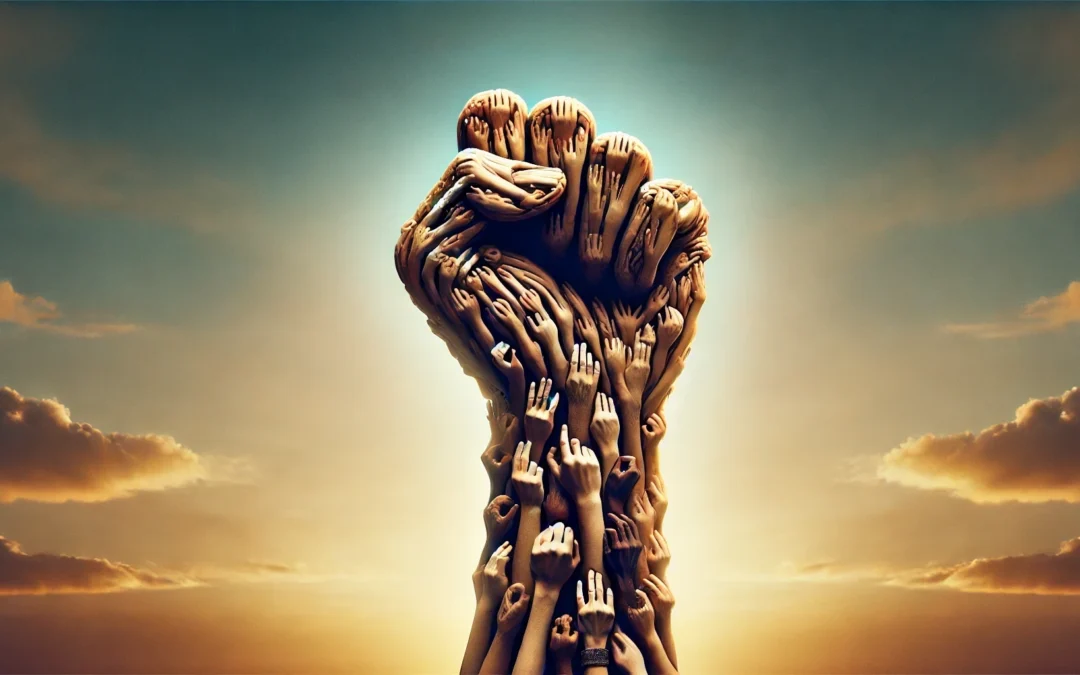Imagine being part of a community where everyone has a say, and decisions aren’t just made by a few at the top. This is what democratization is all about. It’s the process of making systems, tools, and resources accessible to everyone, not just a select few. From using social media platforms that give everyone a voice to open-source software that allows anyone to contribute, democratization is changing the way we interact with the world. It’s not just a political concept; it’s happening in technology, education, and even in the way we consume media.
Consider how music streaming platforms have transformed the music industry. In the past, only artists signed to big record labels could reach a global audience. Now, anyone with a computer and an internet connection can share their music with the world. This is just one example of democratization at work. In this article, we’ll explore 30 different ways democratization is reshaping various aspects of our lives, making them more inclusive and accessible for everyone.
Understanding Democratization
Democratization is the process through which a country transitions from a non-democratic form of government to a democratic one. This transformation involves adopting democratic principles such as free and fair elections, the protection of human rights, and the establishment of political institutions that allow for the participation of citizens in political decision-making. The core idea behind democratization is to empower citizens by giving them a voice in how they are governed, thereby ensuring accountability and transparency in government operations.
The process of democratization can vary significantly between countries and regions, influenced by historical, cultural, and socio-economic factors. Typically, it involves several stages, starting with the liberalization of the political system, where restrictions on political freedoms are gradually loosened. This is often followed by the establishment of democratic institutions, such as parliaments and independent judiciaries, which are crucial for maintaining the rule of law and protecting civil liberties.
A successful democratization process also requires the development of a vibrant civil society, where citizens are actively engaged in political discourse and advocacy. This engagement is often facilitated by a free press and the presence of non-governmental organizations (NGOs) that promote democratic values and monitor the government’s adherence to them.
Democratization is not a linear or guaranteed process; it can face setbacks and challenges such as political instability, resistance from entrenched elites, or external influences. However, when successful, democratization can lead to more stable, prosperous, and equitable societies, where citizens have a greater say in their future.
The Best Examples of Democratization
Discover the most impactful examples of democratization across various fields. These examples showcase how equal access and participation empower individuals and transform societies worldwide.
1. Universal Suffrage
Universal suffrage is a fundamental aspect of democratization. It refers to the right of all adult citizens to vote in elections, regardless of gender, race, or social status. This concept empowers individuals by giving them a voice in their government and its policies, ensuring that everyone has equal representation.
2. Open-Source Software
Open-source software democratizes technology by making code freely available to anyone. Developers around the world can contribute to and improve these programs, which are often shared and used by millions. This model fosters innovation and collaboration, allowing people from diverse backgrounds to participate in technological development.
3. Online Education Platforms
Platforms like Coursera and Khan Academy have democratized education by providing free or affordable courses to anyone with internet access. These platforms break down geographical and financial barriers, allowing learners from all walks of life to access high-quality education and improve their skills.
4. Microfinance
Microfinance offers small loans to entrepreneurs in developing countries, enabling them to start or expand businesses. It is a powerful tool for democratization by providing financial resources to those who are traditionally excluded from the banking system. This empowers individuals to improve their own economic situations and contribute to their communities.
5. Social Media
Social media platforms like Twitter and TikTok have democratized communication by allowing individuals to share their views with a global audience. These platforms have given people the power to influence public opinion, organize movements, and hold institutions accountable, making it easier for voices that were previously marginalized to be heard.
6. Participatory Budgeting
Participatory budgeting involves citizens in the decision-making process of allocating public funds. This approach democratizes governance by allowing community members to propose and vote on projects that impact their lives. It fosters transparency and accountability, ensuring that public resources are used in ways that reflect the community’s needs and priorities.
7. Elon Musk’s X
X, formerly Twitter, under Elon Musk has introduced community notes to promote transparency and informed discussions. This feature allows users to add context to posts, correcting misinformation collaboratively. It democratizes free speech by ensuring accountability while allowing diverse perspectives to flourish. Community-driven moderation empowers ordinary users to maintain the platform’s credibility, showcasing a balance between expression and responsibility.
8. Crowdfunding
Crowdfunding platforms like Kickstarter enable individuals to raise money for projects from a large number of people. This democratizes funding by allowing creators to bypass traditional gatekeepers like banks or investors. It empowers individuals to bring their ideas to life with the support of a community that believes in their vision.
9. Citizen Journalism
With the rise of smartphones and social media, citizen journalism has become a powerful force. It allows ordinary people to report news and events as they happen, providing real-time information that might otherwise be overlooked by mainstream media. This democratizes the flow of information, giving a voice to those who are often unheard.
10. Decentralized Finance (DeFi)
Decentralized Finance, or DeFi, uses blockchain technology to create financial systems that operate without traditional banks. It democratizes finance by making financial services accessible to anyone with an internet connection, reducing reliance on centralized institutions, and increasing transparency in financial transactions.
11. Community Gardens
Community gardens empower residents by providing shared spaces for growing food. These gardens allow individuals to cultivate their own produce, promoting food security and self-sufficiency. Moreover, they foster community spirit and engagement, as people work together towards a common goal, bridging social gaps and enhancing local resilience.
12. Public Libraries
Public libraries are bastions of democratization, offering free access to books, information, and resources. They serve as community hubs where people can learn, explore, and connect. By providing access to knowledge irrespective of economic background, libraries play a crucial role in leveling the educational playing field.
13. Peer-to-Peer Lending
Peer-to-peer lending platforms connect borrowers directly with lenders, bypassing traditional financial institutions. This model democratizes access to credit by allowing individuals to secure loans based on trust and mutual benefit. It opens up new opportunities for those who might not qualify for conventional loans, fostering financial inclusivity.
14. Open Government Data
Open government data initiatives make public sector data freely available to everyone. This transparency enables citizens to understand government operations better, fostering accountability. By allowing access to data, people can participate more actively in civic life, advocate for change, and innovate using the information provided.
15. Cooperative Businesses
Cooperatives are enterprises owned and run by their members, who share in the profits and decision-making. This business model democratizes economic power by distributing control among a group rather than a single owner or board. It ensures that the interests of workers and consumers are prioritized, promoting fairer economic practices.
16. Telemedicine
Telemedicine breaks geographical barriers by providing remote access to healthcare services. It democratizes healthcare by reaching underserved populations, offering consultations, diagnoses, and treatments through digital platforms. This makes healthcare more accessible and equitable, especially for those in rural or isolated areas.
17. Digital Art Platforms
Digital art platforms enable artists to showcase and sell their work online, reaching a global audience without the need for traditional galleries. This democratizes the art world by giving artists of all backgrounds an opportunity to be seen and appreciated. It also allows consumers to access diverse art styles and support creators directly.
18. Community Radio Stations
Community radio stations provide a platform for local voices, broadcasting content that reflects the interests and needs of specific communities. They democratize media by giving individuals the opportunity to create and share content relevant to their lives. These stations often address issues overlooked by mainstream media, ensuring diverse perspectives are heard.
19. Language Learning Apps
Language learning apps make it possible for anyone to learn a new language at their own pace and convenience. By providing affordable or free lessons, these apps democratize language education, breaking down cultural barriers and enhancing communication skills. They empower individuals to connect with others across the globe, fostering understanding and collaboration.
20. Freelance Platforms
Websites like Upwork and Fiverr allow individuals to offer their skills directly to clients. This democratizes the job market by giving freelancers from all backgrounds the opportunity to find work without traditional intermediaries. It opens doors for talented people worldwide, helping them showcase their abilities and earn a living on their terms.
21. Independent Publishing Platforms
Platforms like Substack and Medium empower writers to publish and monetize their content without needing traditional publishers. These platforms democratize content creation by removing gatekeepers and allowing individuals to reach global audiences directly. Writers maintain creative control and profit from their work, fostering a more inclusive and varied publishing landscape.
22. Online Marketplaces for Handmade Goods
Websites like Etsy allow artisans and small business owners to sell directly to consumers worldwide. This democratizes commerce by enabling independent creators to compete with larger companies. Sellers can build businesses based on unique, handmade products while buyers benefit from diverse, often niche offerings. It’s a powerful example of connecting individuals through shared value.
23. Open Scientific Research
Open-access journals like PLOS ONE make scientific studies available to everyone without subscription fees. This democratizes knowledge by removing financial barriers to accessing cutting-edge research. It allows scientists, educators, and curious individuals to learn and innovate without restrictions, promoting global scientific advancement and collaboration.
24. Skill-Sharing Communities
Skill-sharing platforms such as Meetup or Skillshare allow individuals to teach and learn from each other. These communities democratize personal development by providing affordable, peer-driven education. They cater to diverse interests, from coding to cooking, enabling people to gain new skills and build connections in an informal, supportive setting.
25. Ride-Sharing Platforms
Apps like Uber and Lyft have transformed transportation by allowing anyone to become a driver and earn money. This democratizes mobility by providing people with flexible earning opportunities and making rides more accessible. Riders benefit from convenience, while drivers gain financial independence, fostering a win-win model for users.
26. Online Petition Platforms
Platforms like Change.org give people the tools to start and support campaigns for causes they care about. This democratizes activism by enabling anyone to organize and amplify their voice on social issues. These petitions often lead to tangible changes, showing how grassroots efforts can influence policy and corporate behavior.
27. Streaming Platforms for Creators
Services like Twitch and Kick allow individuals to create and share live or recorded content with a global audience. This democratizes entertainment by breaking barriers to entry and giving creators direct access to viewers. Anyone with a camera and an idea can find success, leading to a diverse and engaging content landscape.
28. Local Time Banking Systems
Time banking allows people to trade services based on time rather than money. For example, one hour of gardening can be exchanged for one hour of tutoring. This democratizes local economies by valuing everyone’s time equally, regardless of their profession. It builds community ties while offering practical, equitable exchanges.
29. Mobile Payment Solutions
Apps like Venmo and M-Pesa have revolutionized financial transactions, enabling peer-to-peer payments with ease. These tools democratize financial access by giving people the ability to send and receive money without traditional banking. In developing regions, mobile payments have empowered millions to participate in the economy for the first time, enhancing financial inclusivity.
30. Remote Work Models
Decentralized workforces allow employees to work from anywhere, reducing dependence on a central office. This setup empowers workers to manage their own time and eliminates geographical restrictions for hiring. It creates opportunities for talent from all regions, regardless of location or proximity to urban centers.
Empowering Through Access to Information
Access to information is a crucial component in leveling the playing field across societies. When people have the ability to obtain and share information freely, it fosters an environment where knowledge can thrive and grow. This, in turn, empowers individuals and communities to make informed decisions, participate in governance, and hold authorities accountable.
Consider the role of the internet and digital platforms in this process. They have dramatically increased the availability of information, making it possible for people from all walks of life to access educational resources, news, and data that were once limited to a privileged few. This shift has had profound implications for education, economic opportunities, and civic engagement.
For instance, online courses and educational platforms have opened new avenues for learning, allowing anyone with an internet connection to acquire skills and knowledge. This democratization of education breaks down barriers and promotes lifelong learning, regardless of geographical or socio-economic constraints.
Moreover, social media and independent news outlets have transformed how information is disseminated and consumed. People can now access a variety of perspectives and voices, challenging traditional narratives and promoting transparency. This has been especially significant in regions where media is tightly controlled, providing alternative channels for expression and activism.
However, the sheer volume of information available can also be overwhelming, and not all sources are reliable. Thus, digital literacy becomes essential. Equipping individuals with the skills to critically evaluate information helps them navigate this complex landscape effectively.
In conclusion, access to information is a powerful equalizer. It not only enhances individual empowerment but also contributes to a more informed and active citizenry. As we continue to expand these opportunities, it is crucial to ensure that the benefits are accessible to all, bridging the digital divide and fostering a more equitable society.
The Biggest Pros and Cons of Democratization
Democratization, while empowering and transformative, has its advantages and drawbacks. Understanding these can help us appreciate its impact and navigate its challenges effectively.
Pros of Democratization
1. Increased Participation and Representation
One of the key benefits of democratization is giving more people a voice in decisions that affect their lives. In political systems, this means fair elections where every vote counts. In other areas, such as education or technology, it ensures broader access for people who were previously excluded. This fosters a sense of inclusion and fairness.
2. Promotes Innovation and Collaboration
When barriers are lowered, more people can contribute ideas and expertise. For example, open-source software allows developers worldwide to improve and build on each other’s work. This collaborative approach often leads to faster innovation and solutions that benefit many.
3. Strengthens Accountability
Democratization encourages transparency. In governance, for instance, elected officials are held accountable by voters. In businesses or organizations, it ensures decision-makers consider diverse opinions and interests. This reduces the chance of unchecked power and corruption.
4. Empowers Marginalized Groups
Democratization provides opportunities for those who have historically been excluded. Whether it’s access to education, financial tools, or platforms to share their voices, more people can participate meaningfully. This creates a more balanced and equitable society.
5. Encourages Social and Economic Mobility
By breaking down traditional hierarchies, democratization helps people from all backgrounds succeed. A good example is crowdfunding, where entrepreneurs can secure funding based on the strength of their ideas rather than their personal wealth or connections.
Cons of Democratization
1. Risk of Misinformation
When everyone has a platform to share their opinions, not all information shared is accurate or reliable. Social media, for example, has democratized communication but also amplified the spread of misinformation. This can mislead people and create confusion.
2. Potential for Inefficiency
In systems where everyone has a say, decision-making can be slower. Reaching a consensus often takes time and effort. For instance, participatory budgeting can be empowering, but it may delay critical projects due to lengthy deliberations.
3. Quality Over Quantity Issues
While democratization opens doors to many, it doesn’t always ensure quality contributions. In open systems like Wikipedia, anyone can edit content. While this fosters inclusivity, it can sometimes compromise accuracy or depth.
4. Risk of Majority Tyranny
Democratization can sometimes overlook minority voices. In voting systems, for example, majority rule may lead to decisions that don’t consider the needs of smaller groups. This highlights the need for safeguards to protect diverse perspectives.
5. Overwhelming Competition
In democratized systems like freelancing platforms or digital marketplaces, accessibility leads to intense competition. While this benefits consumers with lower costs or more choices, it can make it harder for individual contributors to stand out.
Striking a Balance
The pros and cons of democratization highlight the importance of balance. While it fosters fairness and inclusion, it requires thoughtful implementation to address its challenges. By focusing on transparency, education, and collaboration, we can maximize its benefits and minimize its downsides.
Democratization and Technology: Bridging Gaps and Creating New Opportunities
Technology plays a crucial role in democratization. It has the power to bridge gaps that once seemed insurmountable. The internet has connected people in ways that were impossible before. It allows for the free exchange of ideas and information. This connectivity fosters a sense of global community. Social media platforms give a voice to those who might otherwise be unheard. They enable grassroots movements to gain momentum quickly.
However, technology also presents challenges. Not everyone has equal access to digital tools. This digital divide can exacerbate existing inequalities. In some regions, internet access is limited or controlled by governments. This restriction can hinder the democratization process. Yet, innovative solutions are emerging. Community-driven projects aim to expand internet access in remote areas.
The impact of technology on democratization is a double-edged sword. It offers opportunities but also presents hurdles. It’s important to recognize both sides of this dynamic. By doing so, we can work towards a more inclusive future. A future where technology truly serves everyone. And not just a privileged few.
The Role of Education in Promoting Democratization
Education is a fundamental pillar of democratization. It empowers individuals with knowledge and skills. Education fosters critical thinking and informed decision-making. When people are educated, they are more likely to participate in democratic processes. They can better understand their rights and responsibilities.
Access to education is not uniform across the globe. Some regions have robust educational systems. Others struggle with inadequate resources and infrastructure. This disparity affects the democratization process. Efforts to improve education must be prioritized. This includes investing in teacher training and school facilities.
Education also promotes tolerance and understanding. It exposes students to diverse perspectives and cultures. This exposure is vital in a world that is increasingly interconnected. It helps build a society that values dialogue over division.
In many ways, education is the foundation of democracy. It equips citizens with the tools they need to engage in civic life. Without it, meaningful participation is limited. Investing in education is investing in a democratic future. It’s as simple as that.
The Most Popular on BitGlint

20 Examples of Secondary Consumers in the Food Chain
Secondary consumers are animals that eat other animals—usually herbivores that feed on plants. They’re an important...

Treating People as Individual: 20 Examples & Meaning
Every person is unique. We all have different experiences, opinions, strengths, and struggles. Yet, in many...

30 Moral Reasoning Examples & Definition
Moral reasoning is something most people use every day, often without even realizing it. It’s the thought process...

50 Examples of Square Things
Square things are part of everyday life, even if we don’t always think about them. From objects we use at home to...

20 Chronology Examples & Meaning
Chronology is something we use more than we realize. It shows up in conversations, in how we remember the past, and in...

50 Contrast Examples in Life, Art & Literature
We notice contrast all the time, even if we don’t think about it. It's there when the sky shifts from light to dark....

30 Wishful Thinking Examples & Meaning
Wishful thinking is something we all do at some point. You hope things will turn out fine—even if there’s no real...
Get Inspired with BitGlint
The Latest
Top 100 Things That Are Important
Everyone has their own perspective on what's most important in life. While priorities might differ from one person to another, certain things consistently rank highly across cultures, ages, and experiences. This article lists the top 100 things that many people find...

30 Oversimplification Examples & What it Means
Oversimplification is everywhere. You've probably encountered it many times - on social media, in casual conversations, and even in the news. But what exactly is oversimplification, and why should you care? Simply put, oversimplification happens when complex issues...
20 Examples of Gravity & What Gravity Really Is
Gravity is one of the most important forces in the universe, but many people don’t fully understand what it really is or how it works. We all experience gravity every day - when we walk, when something drops, or when we simply sit in a chair. But there’s much more to...
Top 20 Dishonesty Examples & Definition
Dishonesty shows up everywhere. It can be small, like telling a white lie, or much bigger, like fraud. No matter the size, dishonesty has a ripple effect that can damage trust. In this article, we’ll explore 20 common examples of dishonesty to help you spot them in...

